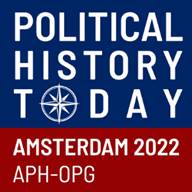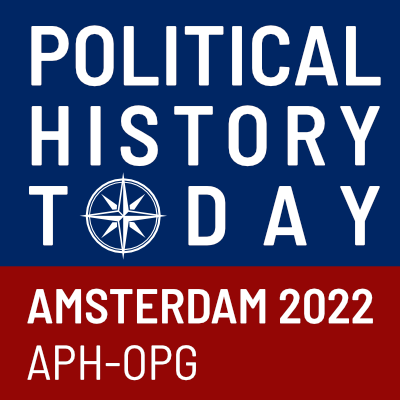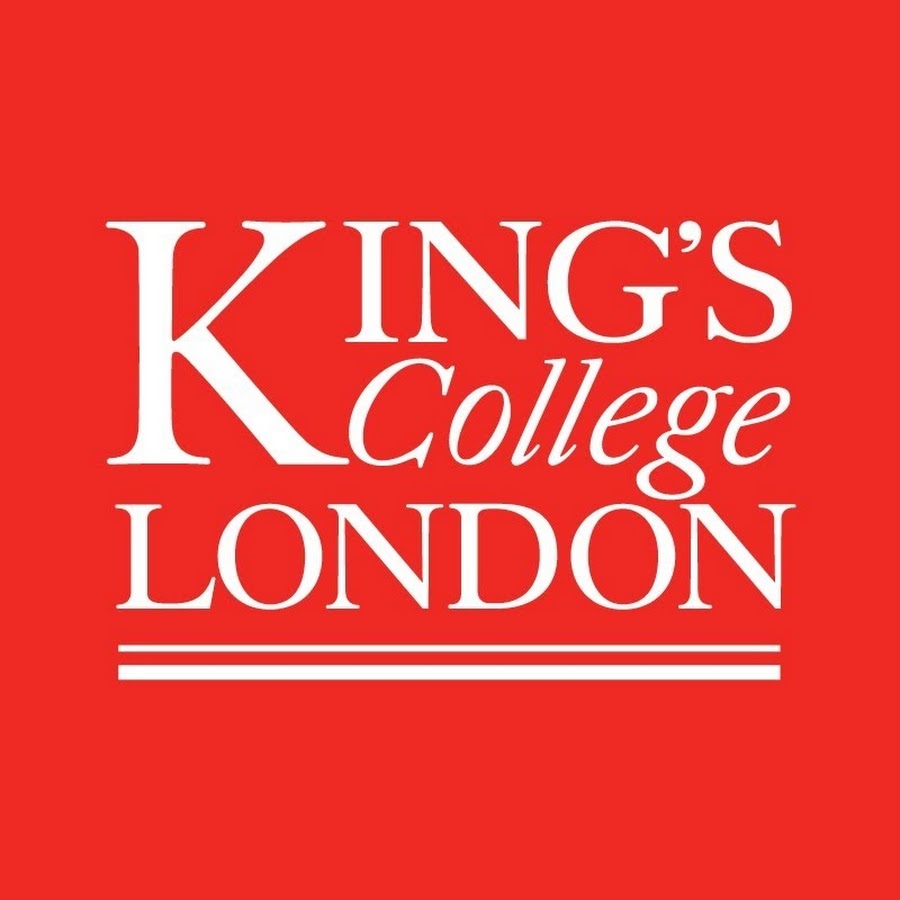Five years after successfully taking stock of the “State of the Art in the History of Politics” (The Hague, 2017), next Summer, the Association for Political History (APH) and the Dutch national Research School Political History (RSPH/OPG) organize a two-day follow-up conference in Amsterdam to revisit the field and explore new themes in the history of politics.
In this conference, we invite you to join us in a reflection on the concepts, methods, and sources for political history. What is it that we do when we study political history? What is the timeframe and the spatial dimension of histories of the political? What theories, concepts, and examples from the subdisciplines of history, the social and other sciences help us explain continuity and change in political history? How do old and new methods of inquiry and older and newer types of sources affect our work?
Another aim of the conference is to highlight new and urgent themes that have been introduced to the field over the last couple of years. These include new perspectives on the histories of decolonization, as well as the rise of the global in studies of the World Wars, the Cold War, the Sixties, Seventies, and the rise of neoliberalism from the 1980s onwards. Research projects on global activism, on climate change and the environment, poverty, or migration, and its impact on local, regional, national, and international politics seem to beg for attention too. Equally relevant are the new histories of democracy, freedom, and parliamentarianism, which have certainly helped us understand, and maybe even overcome, the challenges of populism and authoritarian leadership. A relevant question is therefore also the question what we have to contribute, not only to the academic debate on things political, but also to the political issues of our time and how can we try to impact today’s, and tomorrow’s, crucial societal debates.
These reflection will be triggered by three internationally reputed speakers and related roundtables, new themes will be staged in eight panels as well as in side events.
The conference is organized by the Association for Political History and the Dutch national Research School Political History.
Program 23 and 24 June
23 June 2022
15.30 Welcome, registration coffee and tea
16.00 Opening, welcome and introduction to the conference by Jacco Pekelder (academic director Dutch Research School Political History and professor of Modern and Contemporary History of the Netherlands, Münster University), Henk te Velde (chair of the Association for Political History, and professor of Dutch History, Leyden University) and Ido de Haan (professor of Political History, Utrecht University)
16.15 How to study political history today? Democracy as embodied practice and national experience
Keynote by Hedwig Richter (professor of Modern and Contemporary History Universität der Bundeswehr München)
To analyze the crises of democracy in a more accurate way, it is important to look at the history of democracy. It is an “impure” history, a history comprising a disorderly conglomeration of concepts and practices that often contradicted each other. The liberal democracy that emerged from this history, with human dignity at its centre, therefore turns out to be a patchwork, a structure struggling for balance.
16.45 The state of the art in political history: legacies, challenges, and opportunities
Roundtable with Liesbeth van de Grift (professor International History and the Environment, Utrecht University), Irène Herrmann(professor in Transnational History of Switzerland, Université de Genève, Giovanni Orsina (professor of Contemporary History at LUISS Guido Carli University, Rome), Anne-Isabelle Richard (assistant professor in History, Leyden University), Hedwig Richter and Ido de Haan (chair)
In this roundtable we will look back at, and look beyond, the crucial shift in our field of study, from ‘political history’ to ‘the history of politics’. What are outstanding or problematic examples of this reorientation in the study of things political? What do we understand better now? What is the most important question we need to address the coming years? Which concept, theory, method, technique, and/or source material do you suggest to grasp the newest, or most relevant issue to study in our discipline in the coming years?
18.15 Drinks and dinner
24 June 2022
9.00 Registration, coffee and tea
9.30 Opening, welcome and introduction to the conference by Jacco Pekelder (academic director Research School Political History, Münster University), introduction to the conference
9.40 How to write a long-term history of the political?
What modernists can learn from early modernists. A conversation with Judith Pollmann (professor of Early Modern Dutch History, Leyden University) moderated by Henk te Velde (Leyden University) about innovation, citizenship and the proximity of politics.
10.30 Panels
- Panel 1: Drivers and defining moments of neoliberalization in Europe. Organizer: Naomi Woltring
- Panel 2: Norm-setting, power and governance in colonial and political history of the Netherlands-Indonesian relationship 1750-1950. Organizers: Ronald Kroeze, Alicia Schrikker, Lauren Lauret
- Panel 3: The rule of law: Rethinking the political history of law in European and global context. Organizers: Karin van Leeuwen, Brigitte Leucht
- Panel 4: Popular Politics of the Environment: Societal Actors and Activists in International Organisations during the Second Half of the Twentieth Century. Organizers: Alessandra Schimmel, Paul Reef
12.15 Side events
- Demonstration: visualizing politics, with Geert Kessels and Pim van Bree
- Posters with presentations of research of PhD candidates and RMA students
The Inps and the Italian economic miracle: politics, economy, and cultures between 1958 and 1969 – Michele Santoro
The establishment of the University of Antwerp (1954-2003) –
Alexia Coussement
A historical analysis of lithium governance in Latin America –
Mario Parolari
Digital Humanities Project in Collaboration with the NIOD institute -Anne de Klerk
Cold War Developmentalism in the Periphery – the Case of Gilan 1960s-1970s – Misag Javadpour
Hunting for Ambition – The Royal Hunt and the Representation of Power at the Court of Savoy – Bruno Farinelli
Bridging Nationalisms: Italian Ideas of Transnational Solidarity Between the Processes of National Unification in Italy and Germany (1830-1871) – Stefano Lissi
What did Europeans, in this case the French, learn about freedom and democracy from intellectuals who came from their overseas colonies? – Dominique Ankoné
Different actors’ claims to organizing land use and public health between 1861 and 1917 in two of Russia’s peripheries: ‘Eastern’ Bashkiria and ‘European’ Livland – Paul van Dijk
Academic Biography of Statesman P.J. Oud – Boris van Haastrecht
12.45 Lunch
13.45 Panels
- Panel 5: Media&democracy: new concepts, sources and methodologies. Organizer: Betto van Waarden
- Panel 6: Writing the Environment in Empires. Organizer: Paul van Dijk
- Panel 7: Making sense of universities in contemporary history: exploring the prospects of interdisciplinarity. Organizers: Floris van Berckel Smit, Alexia Coussement
- Panel 8: Unusual suspects: local actors and the microdynamics of political conflict. Organizers: Geraldien von Frijtag, Valeria Galimi, Roberta Biasillo
15.30 How to write a global history of politics?
Keynote by Lucy Riall (professor of History, European University Institute Florence) (plus online zoom)
16.00 Roundtable 2:
Long-term and global history of politics
with Marnix Beyen (professor of History, Antwerp University), Hagen Schulz-Forberg (associate professor for Global and European History), Lucy Riall, Judith Pollmann and Henk te Velde (chair) (plus online zoom)
17.00 Drinks
***************
Location
Our conference venue is the Trippenhuis, home of the Royal Netherlands Academy of Arts and Sciences, in Amsterdam city center ( Kloveniersburgwal 29).
Organization
The conference is organized by the Dutch national Research School Political History. The RSPH/OPG is the national platform for political historians, who are working together to promote high-quality research and strengthen (inter)national cooperation. In additional, the OPG/RSPH provides first-rate training for PhD candidates and Research Master Students.
The OPG/RSPH is one of the founding members of the Association for Political History. The association aims to strengthen international cooperation in the field of education and research and organizes, amongst others, annual conferences.
Organizing committee:
Prof. Dr. Jacco Pekelder (chair), Dr. Marijke van Faassen, Prof. Dr. Ido de Haan, Dr. Carla Hoetink, Dr. Margit van der Steen (coordination), Prof. Dr. Henk te Velde.
Design logo: Tim Mäkelburg
Corona
Please note that we will organize the conference in line with Dutch corona regulations
Conference fee
- Full conference fee incl. Thursday dinner: 75 euro
- Full conference fee no dinner: 50 euro
- Single day fee 23 June incl. dinner: 50 euro
- Single day fee 24 June dinner: 25 euro
Registration starts 12 May, via https://www.aanmelder.nl/politicalhistorytoday2022
Board meeting APH 23 June 2022 14.30-15.30
Up to date information and registration:
https://www.aanmelder.nl/politicalhistorytoday2022
Contact
bureau@onderzoekschoolpolitiekegeschiedenis.nl







